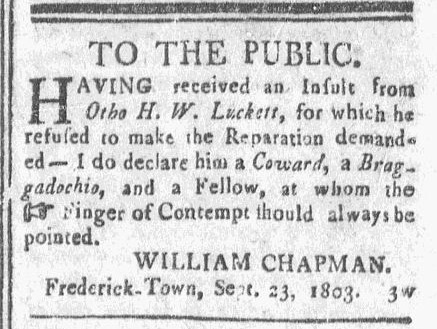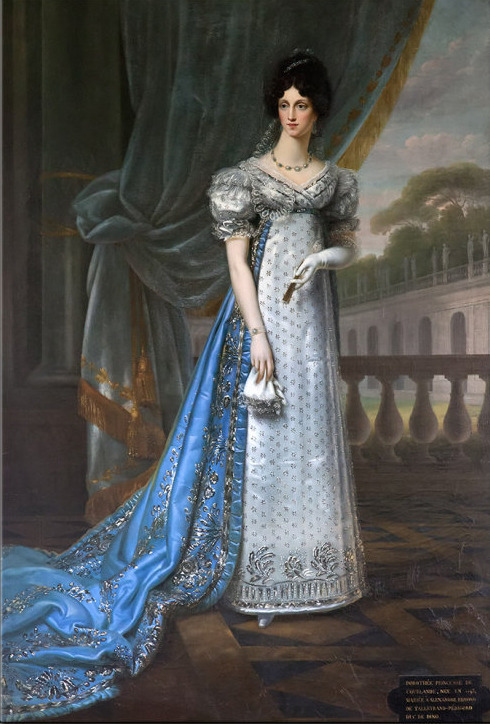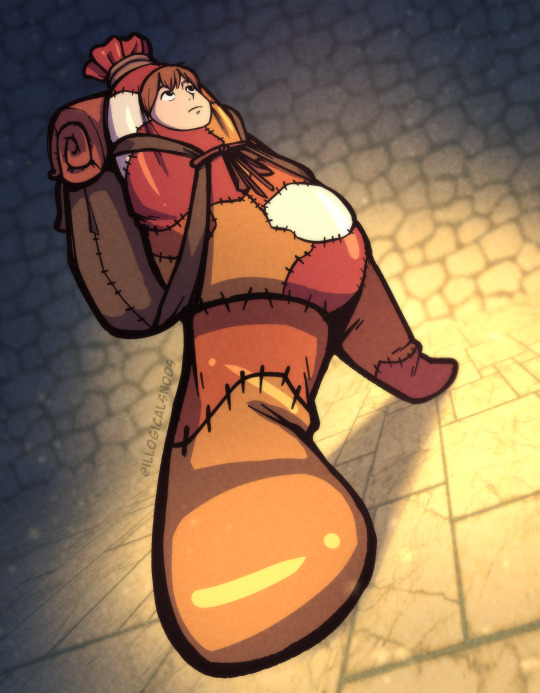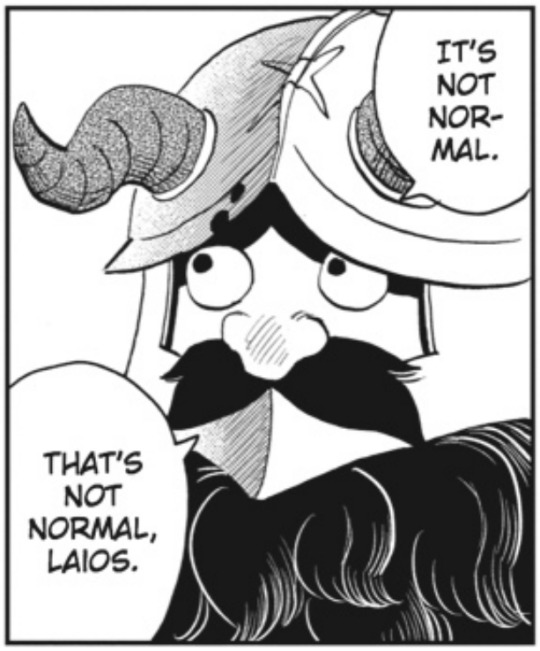Text
“If a society puts half its children into short skirts and warns them not to move in ways that reveal their panties, while putting the other half into jeans and overalls and encouraging them to climb trees, play ball, and participate in other vigorous outdoor games; if later, during adolescence, the children who have been wearing trousers are urged to “eat like growing boys,” while the children in skirts are warned to watch their weight and not get fat; if the half in jeans runs around in sneakers or boots, while the half in skirts totters about on spike heels, then these two groups of people will be biologically as well as socially different. Their muscles will be different, as will their reflexes, posture, arms, legs and feet, hand-eye coordination, and so on. Similarly, people who spend eight hours a day in an office working at a typewriter or a visual display terminal will be biologically different from those who work on construction jobs. There is no way to sort the biological and social components that produce these differences. We cannot sort nature from nurture when we confront group differences in societies in which people from different races, classes, and sexes do not have equal access to resources and power, and therefore live in different environments. Sex-typed generalizations, such as that men are heavier, taller, or stronger than women, obscure the diversity among women and among men and the extensive overlaps between them… Most women and men fall within the same range of heights, weights, and strengths, three variables that depend a great deal on how we have grown up and live. We all know that first-generation Americans, on average, are taller than their immigrant parents and that men who do physical labor, on average, are stronger than male college professors. But we forget to look for the obvious reasons for differences when confronted with assertions like ‘Men are stronger than women.’ We should be asking: ‘Which men?’ and ‘What do they do?’ There may be biologically based average differences between women and men, but these are interwoven with a host of social differences from which we cannot disentangle them.”
— Ruth Hubbard, “The Political Nature of ‘Human Nature’“
(via gothhabiba)
Yes.
100K notes
·
View notes
Text



Miss Universe Philippines 2023 Final Evening Gown
A tribute to Whang-Od
2K notes
·
View notes
Text
From what the spn mutuals are posting i gather misha collins has somehow both called the cw homophobic and said fag
1K notes
·
View notes
Photo

I feel like we need to stop Twitter callouts and go back to publishing them in the newspaper like gentlemen.
(source: The Frederick Hornet, September 27, 1803.)
16K notes
·
View notes
Text


Tom Pullings:
a. “have you seem the james d’arcy depiction. come on.”
Dorothea von Biron:
"A great beauty and gracious hostess, possibly the most beautiful of four extraordinarily attractive and scandalous sisters, said to posses an extraordinary charm. But what makes her The Sexyman is the feat of managing to captivate the old wily devil Talleyrand and becoming the greatest and last love of his life… while, technically, being his niece by marriage.”
19 notes
·
View notes
Text
I dont think its real
#only as a teeny teeny baby/toddler#when i got old enough to read which was. 3 or so. id get annoyed when it wasn't fast
2K notes
·
View notes
Text
in mesopotamia there were no 'cover letters' or 'curriculum vitaes'. there were just, pots.
106K notes
·
View notes
Text
A Brief List of Resources for Classical Studies:
TOSC-IN:
A database enabling you to search for keywords in article titles from c.160 Classics related journals. Provides a link to an abstract or full text version if one exists online.
Classical and Medieval History:
Annotated list of Reference Websites
Diotima: Women and Gender in the Ancient World
Online database and resources for studying Women and Gender in the ancient world.
Encyclopedia of the Hellenic World:
“Original electronic project aiming at collecting, recording, documenting, presenting and promoting the historical data that testify to the presence of Hellenic culture throughout time and space.”
Perseus Digital Library:
A showcase of digital and print resources for Classical studies.
World Archaeology:
Books, Magazines, Blogs, Travel. All Archaeology related.
House of Ptolomy:
Portal website on the Ptolomatic (holla!) Empire.
Star Myths and Constellation Lore:
Information website about the above.
Virgil.com:
Basically a portal site and resource for information on all things Virgil.
Homerica:
Portal and Resource. Link is in French, but you can have the website translated to any language.
Exploring Ancient World Culture:
“On-line course supplement for students and teachers of the ancient and medieval worlds.”
Subject Centre for History, Classics, and Archaeology:
“The Subject Centre for History, Classics and Archaeology is part of the Higher Education Academy.”
The Iris Project:
“an educational charity introducing the languages and culture of the ancient world to UK state schools in order to enrich the curriculum.”
Roman Law Resources
“ information on Roman law sources and literature, the teaching of Roman law, and the persons who study Roman law.”
Egyptology Resources
“World Wide Web resource for Egyptological information.”
ABZU:
“guide to networked open access data relevant to the study and public presentation of the Ancient Near East and the Ancient Mediterranean world”.
Stoa:
A consortium for electronic publication in the Humanities, including most notably: Suda-On-Line English translation of the Suda, a 10th century Byzantine historical encyclopedia. Demos: Classical Athenian Democracy; a practical description of how the various institutions of Athenian democracy actually worked. Metis Bruce Hartzler’s collection of interactive QTVR panoramas for ancient Greek archaeological sites. And Medicina Antiqua A resource for the study of medicine in the Greek and Roman world.
Hellenic History:
From the Stone Age through the Modern Period from The Foundation of the Hellenic World (FHW), a non-profit cultural institution based in Athens, Greece.
Hellenic Culture:
Website of the Hellenic Ministry of Culture with sites on the museums, monuments, and archaeological sites of Greece.
Athenian Agora Excavations:
Website of the American School of Classical Studies at Althens’ excavations of the Athenian Agora.
Digital Classicist:
Concise information on projects applying computing technologies to Classical/Ancient Historical research.
VROMA:
Online scholarly community of teachers and students who share an interest in the ancient Roman world; images, texts, history and many other resources.
GNOMON Online:
Recent journal articles and book in the Classics. Type general search term under “Alle Felder” (All Fields) or specific “Autor” (Author) and hit “Suche Starten” (Start search).“
Ancient World Mapping Center:
University of North Carolina. Cartographic resources, including a collection of free digital maps for educational use.
Ancient Scripts:
A website by “enthusiasts” rather than scholars but very interesting!
The Beazley Archive Classical Art Research Center:
Databases and study tools.
Bryn Mawr Classical Review:
Timely open-access, peer-reviewed reviews of current scholarly work in the field of classical studies (including archaeology). This site is the authoritative archive of BMCR’s publication, from 1990 to the present.
Archive of Performances of Greek and Roman Drama
It investigates the performance of ancient texts in any medium and any period, from Greek tragedy to Roman epic, from stage to screen, from antiquity to the present day.
The British Library Digitized Manuscripts
Contains digitised versions of a quarter fo the British Museum’s Greek manuscripts.
The Ancient World Online:
A blog which, much like this, presents a variety of online resources for the Ancient world.
Electronic Archive of Greek and Latin Epigraphy:
A website which seeks to store virtual Greek and Latin epigraphy of the ancient world, through a federation of multiple archive banks.
Projekt Dyabola:
Litterature and Object databases.
The Digital Sculpture Project:
A website devoted to studying ways in which 3D digital technologies can be applied to the capture, representation and interpretation of sculpture from all periods and cultures. Up to now, 3D technologies have been used in fruitful ways to represent geometrically simple artifacts such as pottery or larger-scale structures such as buildings and entire cities. With some notable exceptions, sculpture has been neglected by digital humanists.
Animus:
The open access Canadian Journal of Philosophy and Humanities.
American Philological Association’s Society for Classical Studies:
A “ principal learned society in North America for the study of ancient Greek and Roman languages, literatures, and civilizations.”
The Classical Association of Canada:
Access to a wide variety of resources about Classics in Canada including graduate programs, and the monthly bulletin.
Corpus Thomisticum:
The works of St. Thomas Aquinas in Latin.
J. O’Donnell’s commentary on Augustine’s Confessions:
An on-line reprint of Augustine: Confessions, with commentary by James J. O'Donnell.
LANGUAGE RESOURCES:
UC Berkeley Ancient Greek Resources:
Pronunciation Guide; Accentuation Drills; Vocabulary Drills; and much more.
Akropolis World News:
The news of the world in Ancient Greek- a great way to learn and practice the language.
Logeion:
Quick look-up of Greek and Latin words across all of the Perseus lexica.
Dictionaries [VIA Perseus Project]: LATIN || GREEK
NUMISMATICS [COINAGE]:
American Numismatic Societ’s MANTIS:
Database on more than 600,000 objects.
CHRR Online:
Coin hoards of the Roman Republic Online archive.
Online Coins of the Roman Empire:
Similar to CHRR but coins of the Empire.
Roman Provincial Coinage Online:
A standard typology of the provincial coinage of the Roman Empire.
British Museum’s Roman Coinage:
A series of resources on Roman coinage.
Sylloge Nummorum Graecorum:
The Sylloge Nummorum Graecorum is a British AcademyResearch Project, the purpose of which is to publish illustrated catalogues of Greek coins in public and private collections in the British Isles.
MANUSCRIPTS:
Digitalized Greek Manuscripts:
Princeton’s Modern language translations of Byzantine sources, digitized Greek manuscripts.
Pinakes:
Pinakes s'ouvre à de nouvelles collaborations institutionnelles et accueille maintenant des projets de recherches sur les manuscrits de divers domaines. On trouvera l'ensemble des partenaires et des financements passés ou actuels sur la page Colophon.
Greek Codicology/Paleography:
A detailed biliography on Greek codicology.
Resource Lists by School: All links are to Classics, or Antiquities portals for more resource lists.
Oxford Libraries
Cambridge Libraries
University of Toronto
Berkeley Classics Department
Library of Congress: Classics and Medieval History
Virginia Tech: Electronic Antiquity
Brock University: Classics Research Guide
Cambridge Ancient History Series
Williams.
University of Texas
Princeton University
Text Databases [Via Oxford]:
Antiquity
American Journal of Archaeology
Archaeology Magazine
Arion
Cambridge Archaeological Journal
Classical Philology
Classical Quarterly
Classical Review
Eranos
Greece & Rome
Journal of Near Eastern Studies
Journal of Field Archaeology
Journal of Roman Military Equipment Studies
Journal of Roman Archaeology
Kernos
Phoenix
Pomoerium
Syllecta Classica
Zeitschrift fur Papyrologie und Epigraphie
Gateways:
Argos - search-engine for all major classical resources
Classics Section of the Intute gateway.
Voice of the Shuttle Classics Page from University of California, Santa Barbara
Classical and Biblical Literary Research Tools compiled by Jack Lynch at Penn
Reading Classics Gateway
Kirke Katalog der Internetressourcen für die Klassische Philologie
NOTE: So I compiled a list of some of my favorite classics sites to use. I also put in links to other school’s departments and libraries. Almost all Universities which have Classics departments have resources lists. If you want to add to the list, please do!
All of the schools above have much more extensive lists for you to use! I made this list in little over half an hour, so there is much room to be expanded on.
NEW ADDITIONS:
Latin Library at Packard Humanities Institute - http://latin.packhum.org/ (PHI numbers standard way to refer to Latin texts, look at the ones Perseus uses - it’s PHI).
Brepolis - http://www.brepolis.net/ - may need to access this via your institution or its ezproxy (includes the Library of Latin Texts A and B LLT-A and LLT-B and many other interesting resources).
L’Annee Philologique - http://www.annee-philologique.com - another one in which you’ll have to use via your institution’s ezproxy or other online database (we use ebscohost). Many journals you submit articles to expect references to other journals use the abbreviations in APh.
For databases of journals, first start at JSTOR - http://www.jstor.org - again, institutional access is required.
((Via: monumentum))
The Latin Library - A collection of Classical and Medieval texts in Latin, organized by author.
The Internet Ancient History Sourcebook - A collection of mostly primary source texts translated into English. Not comprehensive, but covers a broad range of topics.
((Via: hodie-scolastica))
9K notes
·
View notes
Text
When you are alone and have a heart attack. What are you gonna do then?
Take a 2 minute break and read this:
Let's say it's 5:25 pm and you're driving home after an unusually hard day's work.
You are really tired and frustrated. All of a sudden your chest pains. They are starting to radiate in the arm and jaw. It feels like being stabbed in the chest and heart. You're only a few miles away from the nearest hospital or home.
Unfortunately you don't know if you can make it..
Maybe you've taken CPR training, but the person running the course hasn't told you how to help yourself.
How do you survive a heart attack when you're alone when it happens? A person who is feeling weak and whose heart is beating hard has only about 10 seconds before losing consciousness.
1. But you can help yourself by coughing repeatedly and very strongly! Deep breaths before every cough. Coughing should be repeated every second until you arrive at the hospital or until your heart starts to beat normally.
2. Deep breathing gives oxygen to your lungs and coughing movements boost the heart and blood circulation. Heart pressure also helps to restore a normal heartbeat. Here's how cardiac arrest victims can make it to the hospital for the right treatment
3. Cardiologists say if someone gets this message and passes it on to 10 people, we can expect to save at least one life.
4. FOR WOMEN: You should know that women have additional and different symptoms. Rarely have crushing chest pain or pain in the arms. Often have indigestion and tightness across the back at the bra line plus sudden fatigue.
18K notes
·
View notes
Text
When you are alone and have a heart attack. What are you gonna do then?
Take a 2 minute break and read this:
Let's say it's 5:25 pm and you're driving home after an unusually hard day's work.
You are really tired and frustrated. All of a sudden your chest pains. They are starting to radiate in the arm and jaw. It feels like being stabbed in the chest and heart. You're only a few miles away from the nearest hospital or home.
Unfortunately you don't know if you can make it..
Maybe you've taken CPR training, but the person running the course hasn't told you how to help yourself.
How do you survive a heart attack when you're alone when it happens? A person who is feeling weak and whose heart is beating hard has only about 10 seconds before losing consciousness.
1. But you can help yourself by coughing repeatedly and very strongly! Deep breaths before every cough. Coughing should be repeated every second until you arrive at the hospital or until your heart starts to beat normally.
2. Deep breathing gives oxygen to your lungs and coughing movements boost the heart and blood circulation. Heart pressure also helps to restore a normal heartbeat. Here's how cardiac arrest victims can make it to the hospital for the right treatment
3. Cardiologists say if someone gets this message and passes it on to 10 people, we can expect to save at least one life.
4. FOR WOMEN: You should know that women have additional and different symptoms. Rarely have crushing chest pain or pain in the arms. Often have indigestion and tightness across the back at the bra line plus sudden fatigue.
18K notes
·
View notes
Text
this is purely for fun and I've certainly been guilty of a few of these things myself in my years of fic writing. don't be weird in the notes and don't use this as an excuse to insult someone's writing.
#ok maybe unpopular opinion but. i am completely fine w padding#bc when you walk barefoot in a specific way/mood it Is padding
4K notes
·
View notes
Text

why they got chucklefuck looking like a longganisa 😭😭😭😭😭😭😭😭😭😭😭😭😭😭😭😭😭😭😭😭😭😭😭😭😭😭😭😭😭😭😭😭😭😭😭😭😭😭😭😭😭😭😭😭😭😭😭😭😭😭😭😭😭😭😭
2K notes
·
View notes







